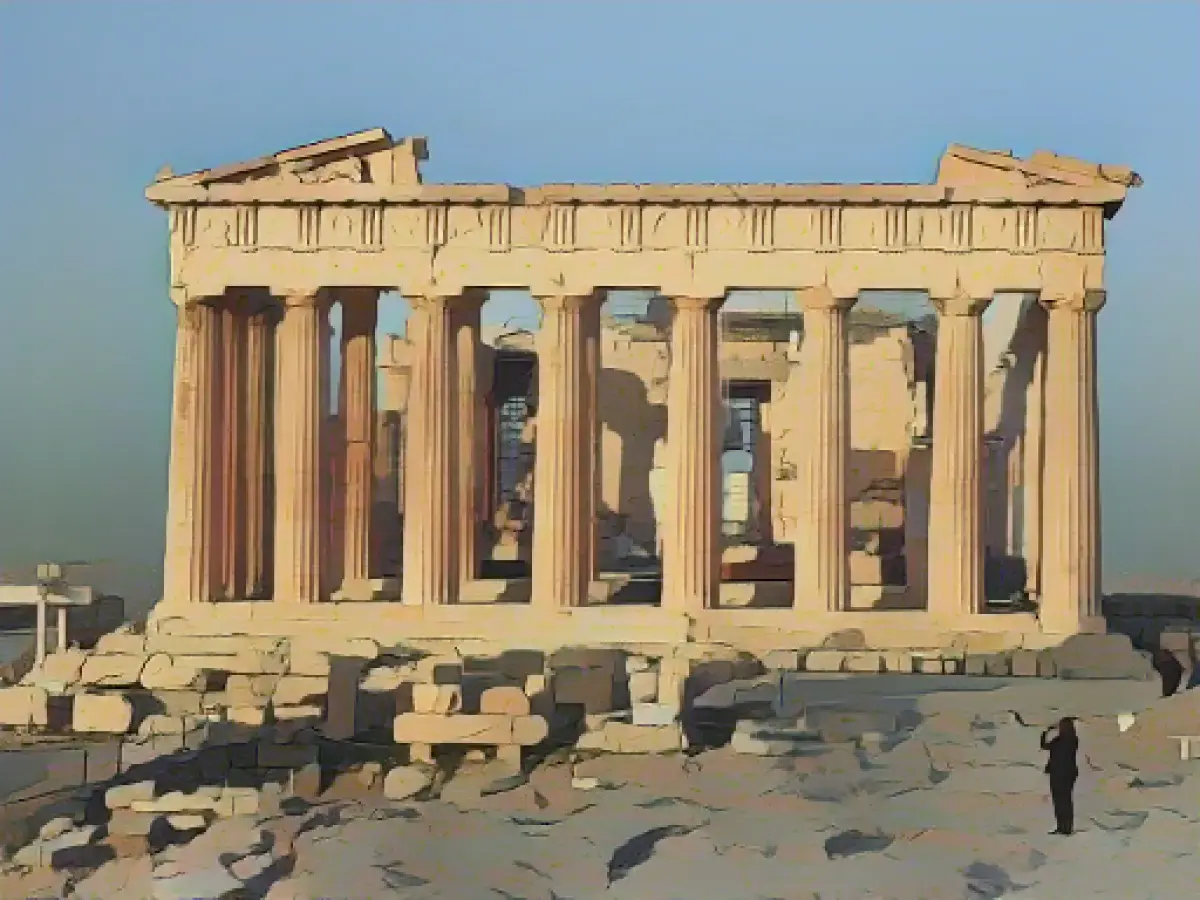Parthenon frieze: Dispute between Athens and London escalates
There is talk of crisis, disgrace and even "cold war": the dispute between London and Athens over the return of a cultural treasure from the British Museum to Greece has escalated to the highest level. A few hours before a planned meeting, British Prime Minister Rishi Sunak surprisingly canceled his Greek counterpart Kyriakos Mitsotakis - although his Conservative party colleague was already in London.
Mitsotakis refused an alternative meeting with Sunak's deputy Oliver Dowden - and expressed his anger. There is talk of a diplomatic scandal between NATO partners.
At the center of the dispute are frieze sections of the Parthenon temple on the Acropolis in Athens. People in Great Britain know the art treasure, which is on display in London's British Museum, as the "Elgin Marbles". The name explains the conflict: it was the British diplomat Lord Elgin who, at the beginning of the 19th century, had the best-preserved marble slabs and sculptures from the Parthenon frieze on the Acropolis dismantled and brought to England. There he sold them to the British Museum in 1816. From the Greek point of view, however, Elgin stole the frieze pieces, as Mitsotakis recently emphasized.
The fame of ancient Greece
The outrage in Greece was correspondingly great. The newspaper "Apogevmatini" headlined on Tuesday that the Elgin had probably awoken in Sunak. The case is an issue that goes beyond party controversies and concerns the history of an entire nation, said the leader of the largest opposition party, the left-wing Syriza, Stefanos Kasselakis. "And it is a moral issue that concerns the shameless theft of cultural assets from their natural environment." The Parthenon Temple ("Virgin Chamber") on the Acropolis in Athens is one of the most famous surviving monuments of ancient Greece.
The dispute had been building up since the weekend, when Mitsotakis caused a stir with a settlement. Dividing the art treasure would be like cutting the "Mona Lisa", the world-famous painting by Leonardo da Vinci, in half and exhibiting it in the Louvre in Paris and the British Museum, the head of government told the BBC on Sunday. At the same time, he emphasized that Athens was interested in a partnership with the London museum. The museum's chairman George Osborne had recently spoken openly about a loan to Greece - on the condition that the "Elgin Marbles" would then return to London.
However, even a loan is out of the question for Sunak, as his spokesman made clear. Great Britain has looked after the sculptures for generations and wants to continue to do so. Instead, the Prime Minister supports a law that prohibits the removal of national cultural treasures from the British Museum. But the wind is changing. On Tuesday, even the conservative newspaper "Times", which had previously supported the government's position, called for the return: "The sculptures belong in Athens," it said in its editorial. They are fundamental to Greece's cultural identity.
Is it all just an election campaign?
According to commentators, the fact that the dispute over the almost 2,500-year-old marble slabs and statues is now escalating is also due to the start of the British election campaign. A new parliament will be elected in January 2025 at the latest. Sunak's Conservatives are far behind the opposition Labor Party in the polls. Sunak's rejection of Mitsotakis became known just as the Greek Prime Minister was meeting with Labor leader Keir Starmer - who in turn was open to a loan, as Greece had recently agreed with Italy in a similar case. It was said that Sunak was trying to score cheap points by pointing to national interest.
Only recently, the British government, which has a strong anti-migration stance, had praised the Greek approach to refugee issues. Now Labour has criticized Sunak's backtracking for preventing important talks with the ally and showing that he is unable to provide the necessary leadership.
According to art experts, the fact that London is calling such a clear halt to the Parthenon friezes could also have something to do with the fact that the "Elgin Marbles" are not the only pieces of controversial origin in the British Museum. In contrast to other museums in London and Germany, the renowned institution refuses to return so-called Benin bronzes to Nigeria.
And then there is the Koh-i-Noor. The world-famous, high-carat diamond is part of the coronation crown of Queen Mum, the mother of Queen Elizabeth II - and comes from the former British colony of India. After the Queen's death last fall, many Indians demanded its return. Also to avoid new debates, the Koh-i-Noor was not used at the coronation of Elizabeth's son King Charles III.
In light of the ongoing dispute, some have suggested that the Parthenon frieze issue is not just a matter of art, but also a reflection of Greece's complex historical relations with Western governments and institutions. This perspective brings into focus the role of government in shaping cultural diplomacy and the morality of possessing and displaying disputed cultural artifacts.
Moreover, the dispute between Athens and London highlights the complications of international art restitution and the various viewpoints on cultural patrimony. As some argue, the ongoing controversy over the Parthenon frieze demonstrates the need for a more inclusive and nuanced approach to resolving such disputes, taking into account not only legal and historical considerations, but also the contents of public opinion and international relations.
Source: www.dpa.com







